MercoPress. South Atlantic News Agency
Tag: Argentine peso
-
Tuesday, September 18th 2018 - 06:56 UTC
Argentine Peso recovers on an IMF support message and budget presentation to Congress
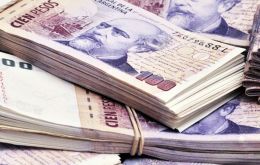
Argentina's battered Peso currency inched higher and the risk of its bonds defaulting declined after the government unveiled its budget plan and the IMF said “important progress” had been made on revamping the country's standby loan agreement.
-
Monday, September 17th 2018 - 08:12 UTC
International support for Argentina's general strike against IMF austerity measures
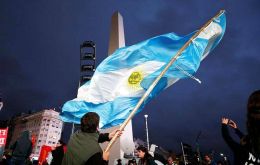
The International Trade Union Conference, ITUC’s affiliates in Argentina, CGT, CTA-A and CTA-T have announced a general strike for 24-25 September in opposition to expected sweeping austerity measures being developed by the government and the International Monetary Fund.
-
Friday, September 14th 2018 - 09:28 UTC
Argentine currency drops to a new record low of 39.90 pesos to the US dollar

Argentina's peso currency fell 3.51% on Thursday to close at a new record low of 39.9 per U.S. dollar, as market confidence ebbs away despite President Mauricio Macri's efforts to reassure investors. Dollar demand had risen on Thursday due to high liquidity sparked by an auction of treasury notes, traders said.
-
Wednesday, September 12th 2018 - 08:13 UTC
Argentina equities and Peso slide, in line with Brazil's political situation

Argentine equities and the Peso continued on Tuesday their slide amid global trade tensions, uncertainty about Argentina's 2019 fiscal budget, talks between the government and the International Monetary Fund and the political situation in Brazil, which together with China are Argentina's main trade partners
-
Tuesday, September 11th 2018 - 09:12 UTC
Argentine equities and Peso lose ground on Monday: IMF and budget concerns

Argentine equities and the peso both lost ground on Monday as analysts said intervention in the foreign exchange market by the nation's central bank may prove less successful than originally hoped.
-
Saturday, September 8th 2018 - 09:11 UTC
Argentine Peso and markets end the week positively; “sufficient financing in 2019” says central bank

Argentina’s central bank governor, Luis Caputo, said on Friday that government financing for 2019 was more than sufficient and that high yields on the country’s sovereign debt were “exaggerated,” prompting the peso currency to reverse earlier
-
Friday, September 7th 2018 - 09:18 UTC
IMF wants to wrap up talks to financially support Argentina “as rapidly as possible”
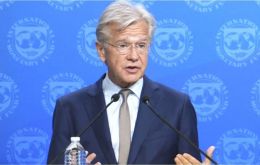
The International Monetary Fund said on Thursday it aimed to wrap up talks to “strengthen” a US$ 50 billion backup financing deal with Argentina “as rapidly as possible,” as the country's peso and stocks climbed for a second straight day.
-
Thursday, September 6th 2018 - 08:40 UTC
IMF receptive to Argentina's request, but now Macri must implement the hard austerity program
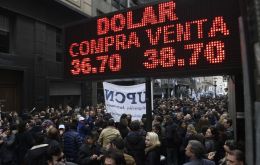
Argentina’s economy minister sounded upbeat on Wednesday about clinching a new deal with the International Monetary Fund after two days of talks in Washington, and said had sought U.S. support for securing approval from the IMF’s board.
-
Wednesday, September 5th 2018 - 08:16 UTC
Argentine Peso slid another 2.18% and the Central bank sold US$ 350 million in reserves
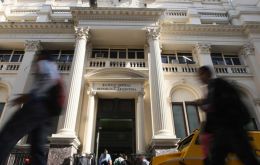
Argentina’s peso slid further on Tuesday as investors reacted with skepticism to president Mauricio Macri’s plans. Many worry he will not be able to push reforms through a restive Congress amid growing frustration on the streets of Buenos Aires.
-
Tuesday, September 4th 2018 - 08:41 UTC
Brazil's Real and Argentina's Peso slumped on Monday
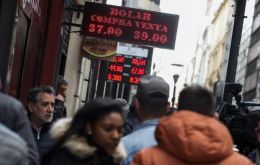
The Brazilian Real slumped on Monday as mounting concerns over this year's presidential election added to global risk aversion, while the Argentine peso extended a recent sell-off that also spread into stock markets in Latin America.
